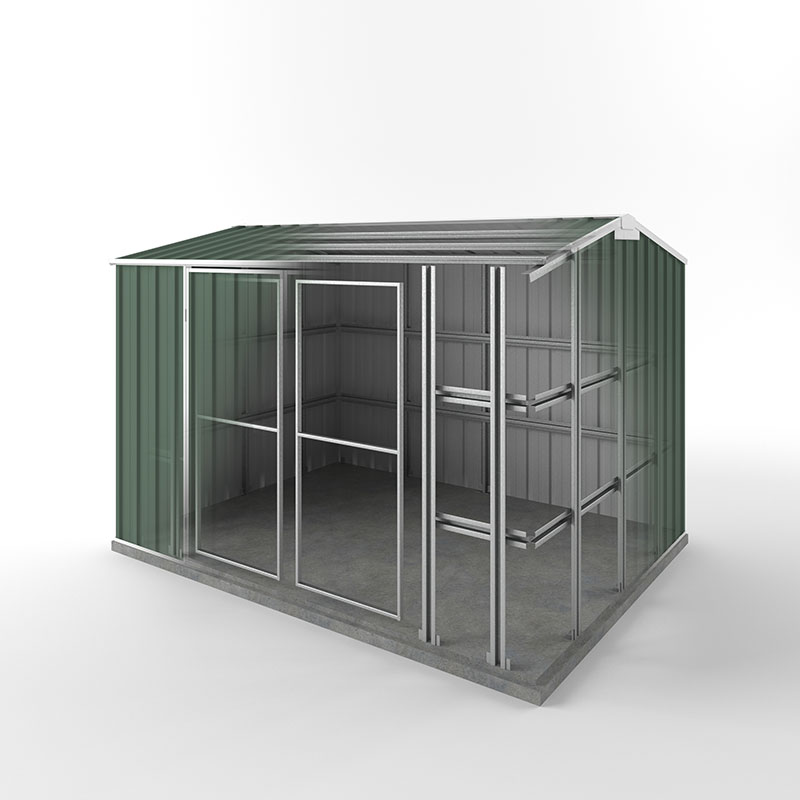How To's
Workshop Sheds: Buying, Installation & Maintenance Guide
We all have our interests – some enjoy restoring classic cars, others woodworking. Whatever your interests and hobbies are – you’ll do them better with a properly equipped workshop in the backyard.
Prefabricated workshop shed kits go together in just a few days and come in a huge selection of styles. From small to large – simple to elaborate. The range is as infinite as our varied interests. To help point you in the right direction lets discuss style and functionality.
Style & Functionality
Obviously, you want your workshop shed to look great, but you also need it to work for its intended use. As with all the products covered on this site – you need to first consider what you’re going to be using it for.
If it’s going to be a workshop shed for restoring classic cars for instance, the workshop needs to be large enough to handle this task.
You’ll also need large carriage or overhead doors, and a healthy amount of headroom. If you’re going to be using your workshop for woodworking – then you’ll want to make sure there is enough room for any woodworking machinery you have or plan on getting.
You will also need enough room to move the various materials around while you’re working on your projects.
The best way to get an idea of sizing is to physically stake out the size you were thinking of, where you were thinking the workshop would go – as it’s easy to see firsthand whether the size works or not.
Once you know the size and what key options you must have, then it’s a matter of what styles work within these parameters. With this filtered selection of available styles – it’s all about personal taste and preference.
Another important factor in functionality is keeping things organized and tidy. Give this some thought in the design stage as it’s easy to build things in for storage now, rather than after it’s built.
Recommended Workshop Options
While options such as double doors, ramps, large opening windows, sky lights for natural light, insulation, all add to the look of your workshop, these types of options are really about making your workshop more functional.
Double doors make it easier to get things in and out. Large opening windows provide air circulation. Sky lights provide much more natural light and insulation packages will allow you to use your workshop year-round regardless of weather conditions.
Again you need to go back to what you’re going to be using it for to be able to figure out what are important functional options, and which are purely aesthetic.
The aforementioned options are very common when it comes to workshops – but there are other useful options you’ll want to consider, and some may not really even be optional in order to make your workshop useful.
Electrical, Plumbing and Heating
If you’ve taken the plunge and invested in a workshop – you’re not likely to want to stop your projects during the colder months, nor will you want to stop when it gets dark.
This means you’re going to need to run electrical and depending on what you’re using your workshop for, possibly water and natural gas to your workshop.
The most important tip we can provide here is to check with your local building permit office.
Some areas have really crazy building permit laws so it’s best to check before you buy anything.
Just give them a quick call and tell them what you’d like to do, where you live and they’ll be able to provide some basic information on any potential road blocks
Once you have the green light for electrical – you can run a heating system, lights and power tools and more importantly, be able to enjoy year-round use of your workshop.
Flooring
Workshops are different from your typical outbuilding. They are normally used for more demanding applications like mechanics, woodworking, serious arts & crafts like pottery and other rigorous tasks.
If what you’re doing in your workshop isn’t that demanding, like basic hobbies, then you might be able to get by with a level spot and patio stone and a plywood base, on which you would install flooring of some type.
Unfortunately, most workshop applications aren’t likely to get away with such a simple foundation.
Workshops are much like garages, which means a good concrete pad. While you could do this on your own, we don’t recommend it for several reasons.
One, it’s back breaking work and two, it needs to be done right, so unless you’re a contractor and really know what you’re doing, don’t skimp here – hire a pro. And make sure you have something substantial built, you’ll want something that’s not going to crack and split in a couple years.
Foundations
While you’re considering the foundation, you might want to look at radiant floor heating – especially if you’re going to be doing things like working on cars. Radiant floor heating is one of the best heating methods available – and it’s efficient and affordable in new construction.
Once you’ve got the decision-making process for the foundation out of the way it’s time to consider what you’re going to lay down on top of this.
You may not need anything if you aren’t all that fussed with looks – but your workshop floor isn’t apt to be huge, so it won’t cost a fortune to get some nice flooring.

